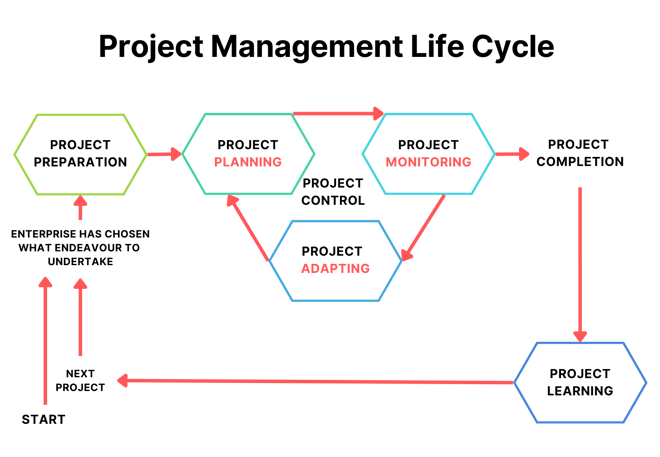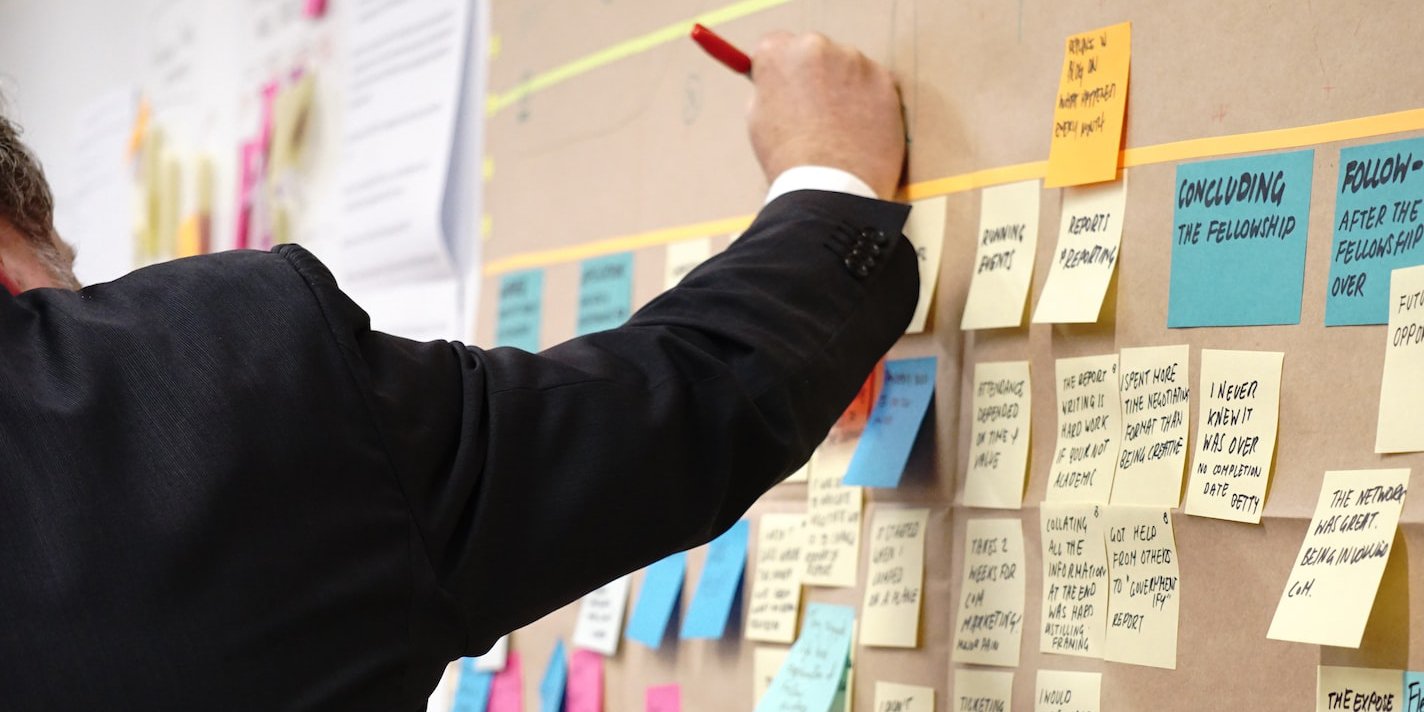Five Elements of the Project Management Life Cycle
We recently spoke with Olivier de Weck to get his insights on leveraging information to improve project management strategy. The resulting article covered substantial ground:
- The role information plays in the project life cycle
- The Iron Triangle of project management (cost, scope, and schedule)
- How the size of an organization or team impacts how information is used
- Advice for project leaders who manage complex projects
- What to expect from MIT xPRO’s project management course, Project Management: Leading Organizations to Success, for which Professor de Weck is a lead instructor
In fact, Professor de Weck had so much valuable information to share with us that we didn’t have the space to include it all in the initial article. One focus area we knew we had to circle back to is the project management life cycle.
Comprising five elements, the project management life cycle applies to projects of various types and sizes, from physical engineering and construction to research and development.
Here’s a closer look at the five elements of the project management life cycle, which Professor de Weck covers in detail throughout the course he instructs.
Understanding the Project Management Life Cycle
The management lifecycle effectively starts when an enterprise has determined that they want to undertake a specific project considering whether the reasons for pursuing it are in alignment with their broader strategy.
"Many enterprises rush into projects too quickly with only vague notions of what success looks like. We argue for a more deliberate and careful approach where the goals, scope, timeline, and budget for projects are carefully established at the outset," says Professor de Weck.

1. Initial project preparation
The earliest phase of a project involves “preparing the ground” to ensure that a proposed project will be successful: lining up stakeholders, obtaining political support, securing funding, and identifying the best people to work on the project. This phase can take months or years to complete.
2. Project planning
Project planning is the process of developing a practical, executable plan. “In the course, we go into quite a bit of detail about the different planning techniques and simulate projects to observe different outcomes,” says Professor de Weck.
3. Project execution
This step consists of monitoring a project’s execution and progress once it’s underway. There are many ways of monitoring a project. One methodology Professor de Weck teaches is Earned Value Management (EVM), which monitors three curves (planned value, earned value, and actual cost) to assess if a project is on track.
4. Project adapting
Next is addressing unexpected opportunities and risks. “No project goes exactly as planned, so you have to be ready to adapt with a Plan B or Plan C,” says Professor de Weck. He adds that the most skilled project leaders already have these alternate plans in their back pockets.
5. Post-project learning
Finally, post-project learning involves debriefing the project and recording the results and takeaways to apply them to the next project. Professor de Weck explains that the very best organizations take this phase seriously and, as a result, see improvements from one project to the next. This leads to what are known as "learning organizations".
Take Your Organization’s Projects to the Next Level
Professionals who take on project leadership positions should expect to be responsible for the planning, execution, monitoring, control, and success of entire projects. In order to succeed at keeping all timelines, dependencies, and responsibilities on track, project managers need to be true leaders, motivators and organizers. Modern theories of project management are changing, along with the industries that use them. Professor de Weck's course not only provides an integrated framework for successful project management, it also sets up realistic expectations and commitments - allowing for flexible online learning that is sustainable for working professionals.
This course applies to both classical waterfall or stage-gate type projects, as well as the more modern agile project management where projects are executed dynamically in sprints or spirals and where the outcome of the project may not have been pre-determined at the start.
If you’re ready to improve your project management skills and take your organization’s projects to the next level, Professor de Weck’s 8-week online course is for you.
Learn more about Project Management: Leading Organizations to Success!



